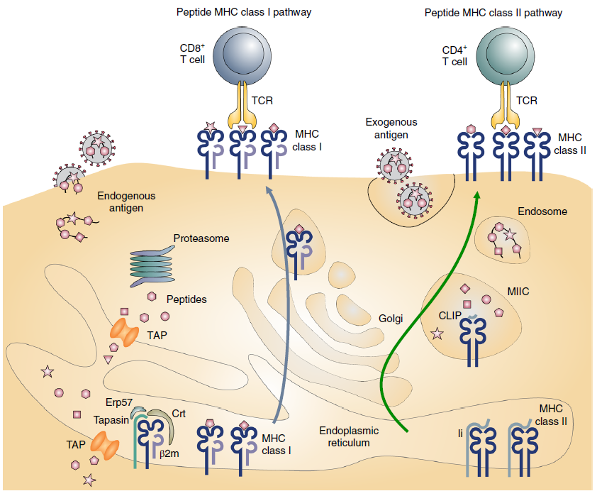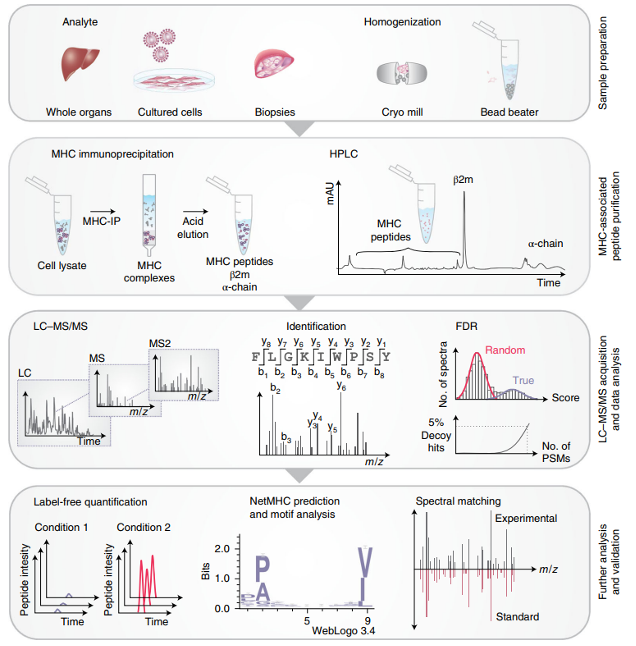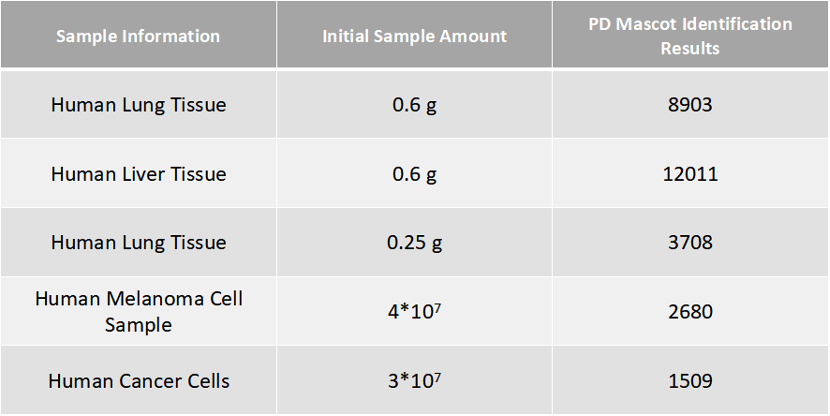Interested in our services
Contact our experts to provide further information




Neoantigen/Immunopeptidomics discovery refers to the process of identifying and characterizing neoantigens and immunopeptides within the context of cancer and the immune system. Neoantigens are unique protein fragments that arise from somatic mutations in cancer cells and are recognized by the immune system as foreign. Immunopeptidomics involves the systematic study of these peptides presented on the surface of cancer cells by major histocompatibility complex (MHC) molecules.
The discovery of neoantigens and immunopeptides is crucial for cancer immunotherapy strategies, as these molecules can serve as targets for the immune response. By identifying the specific peptides that are recognized by T cells and activating an immune response against tumor cells, researchers can develop personalized cancer vaccines, adoptive T cell therapies, and other immunotherapeutic approaches. Mass spectrometry-based proteomics techniques are often used in neoantigen/immunopeptidomics discovery to analyze the peptides presented on the surface of cancer cells and to select potential targets for immunotherapy.

MHC class I and II antigen-presentation pathways(Nat Protoc. 2019;14(6):1687-1707.)

Workflow for MHC-associated peptide purification, identification and validation by nUPLC–MS/MS(Nat Protoc. 2019;14(6):1687-1707.)
1. The distribution of MHC-bound peptides is primarily within the range of 8-20 amino acids. The length and sequence of peptides also influence the binding of peptides to MHC-I molecules.
2. Peptides binding to MHC-I are mainly distributed in the range of 8-11 amino acids, with the 9-amino acid length being the most critical portion for MHC-I binding.
3. MHC-II binding peptides are predominantly in the range of 11-20 amino acids, with 15 amino acids being the main length.

Note: Currently, only MHC-I data is available for reference, while MHC-II data is not yet available.
Interested in our services
Contact our experts to provide further information
